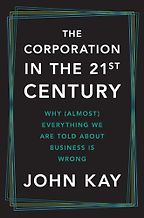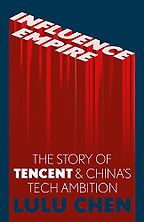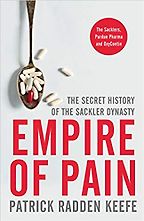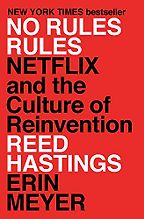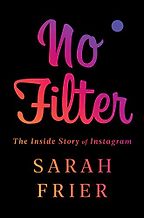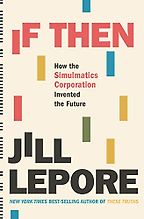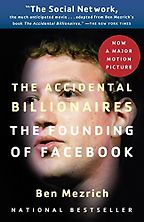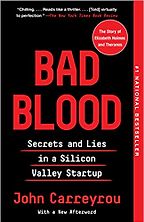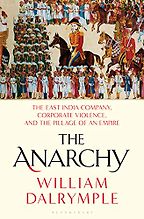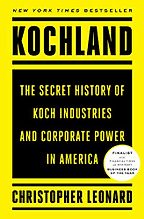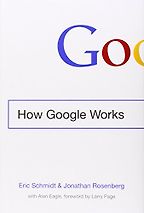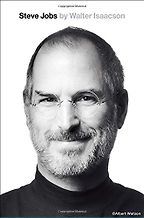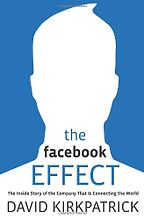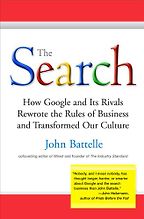Business Books About Companies
Last updated: February 04, 2025
“It’s looking at what has happened to the archetypal vehicle for modern capitalism: the company or corporation. What happens to it when we move, as we have moved, from a world of making mainly things, into a world where lots of products are essentially digital, immaterial or services?…He writes in a very witty, sometimes acerbic style about some of the scandals and setbacks of the corporate model over the years and looks at the way the change in the economic landscape is changing the way companies are run” Read more...
The Best Business Books of 2024: the Financial Times Business Book of the Year Award
Andrew Hill, Journalist
Influence Empire: The Story of Tencent and China’s Tech Ambition
by Lulu Chen
***Shortlisted for the 2022 Financial Times Business Book of the Year Award***
“The book dives into a company that we probably should all know about because it’s so huge within China. Tencent developed the so-called everything app, WeChat. The book is about how Tencent fits into the world of Chinese technology and technology in general. It talks about the rise of Tencent’s founder, Pony Ma. He’s a very elusive figure and Lulu Chen tries to track him down in the course of the book, with limited success. Another reason for reading this book is that it sheds light on the way in which once you become successful in Chinese technology or business, you’re immediately intertwined with the Chinese Communist Party.” Read more...
The Best Business Books of 2022: the Financial Times Business Book of the Year Award
Andrew Hill, Journalist
Empire of Pain: The Secret History of the Sackler Dynasty
by Patrick Radden Keefe
🏆 Winner of the 2021 Baillie Gifford Prize for Non-Fiction
☆ Shortlisted for the 2023 Winner of Winners Prize, which aims to pick out the best nonfiction book of the past 25 years
“It’s an extraordinary book. He’s writing of extraordinary things, but that alone won’t make it a good book. There’s incredible artistry in putting this story together. And because he has a very transparent style—he’s a New Yorker staff writer—and it’s not fancy, it’s very easy to say, ‘Well, he just had to research it and write it down.’ But no, it’s incredibly beautifully done. It’s about the Sackler scandal, this family that’s made a fortune out of Oxycontin, this very, very addictive opioid that’s killed more Americans than have died in all the wars the country has fought since the Second World War. What he does is go back and look at the origins of the company, Purdue Pharma. It’s a fascinating story. It’s an immigrant family, Russian Jewish. The father has a grocer’s shop. They work incredibly hard. Against all the odds the three boys, the first generation, all become doctors. It is the American dream. They’re doing something extraordinary and it’s admirable at the start.” Read more...
The Best Nonfiction Books: The 2021 Baillie Gifford Prize Shortlist
Kathryn Hughes, Literary Scholar
No Rules Rules: Netflix and the Culture of Reinvention
by Erin Meyer & Reed Hastings
***Shortlisted for the 2020 Financial Times Business Book of the Year Award***
“Netflix, of course, was very famously a company that put its radical culture out there for scrutiny in the 2000s, when it published a slide deck—that you can still find online in its original and updated versions—explaining its culture of transparency, how it worked, why you had to behave in particular ways at Netflix. This became a sort of bible for Silicon Valley in particular. But few companies managed to match Netflix and that raises the question—which is partly what this book attempts to answer—of why it’s so difficult to replicate what Netflix does.” Read more...
The Best Business Books of 2020: the Financial Times & McKinsey Business Book of the Year Award
Andrew Hill, Journalist
No Filter: The Inside Story of Instagram
by Sarah Frier
***Winner 2020 of the Financial Times Business Book of the Year Award***
“Sarah Frier is a journalist and she’s gone deep into what happened after Facebook bought Instagram in 2012. You’ll remember that Instagram was a funky photography app with hardly any staff and Facebook paid a billion dollars for it, which shocked everyone at the time. Of course, it turned out to be a fabulous purchase, because we were just getting into the idea of images as a way of carrying our stories, and Instagram developed into a hub for influencers. Sarah Frier has gone heavily on the side of the story that is told by Instagram’s co-founder, Kevin Systrom.” Read more...
The Best Business Books of 2020: the Financial Times & McKinsey Business Book of the Year Award
Andrew Hill, Journalist
If Then: How the Simulmatics Corporation Invented the Future
by Jill Lepore
***Shortlisted for the 2020 Financial Times Business Book of the Year Award***
“I’m very interested in efforts to use computers to understand society because I think we’re going through that debate again, in talking about AI. And some of the visions that people have had for using AI to understand what’s going on now are just like the visions that were around in the 1960s, except with faster computers, and more data. So it’s a very good object lesson in why you should be cautious about any forecasts about the future.” Read more...
The Best Economics Books of 2020
Diane Coyle, Economist
Kochland: The Secret History of Koch Industries and Corporate Power in America
by Christopher Leonard
***Shortlisted for the 2019 Financial Times Business Book of the Year Award***
“Leonard’s book is the story of Koch Industries, which is the little known and rather secretive private conglomerate owned by the Koch family. It’s had a big influence as a business, but the Koch brothers, who own it, have also had a lot of political influence.” Read more...
The Best Business Books of 2019: the Financial Times & McKinsey Book of the Year Award
Andrew Hill, Journalist
“What happens is that we look at things Google, or Facebook, and we see these big corporate enterprises. We don’t see the fact that there are people inside running them, and there have been hurdles.” Read more...
The best books on Personal Branding
Cynthia Johnson, Entrepreneurs & Business People
“I love this book…He focuses on why Steve Jobs was such an unusual character but also to what extent he represents the spirit of Silicon Valley and modern entrepreneurship. I think Steve Jobs is, for all his flaws, almost a symbol—and certainly a role model—for a whole generation of young people who want to be entrepreneurs. What’s so interesting about Steve Jobs is that there’s a lot of going against the grain. He defies all the classic definitions about what you would expect from an entrepreneur—certainly for a businessman—so that is beautiful. This is the hippy who comes to business meetings without shoes. It certainly brings out the personal side of entrepreneurship. One of the things about entrepreneurship that I put a lot of emphasis into teaching is that it’s not a thing, it’s a process. It’s not one act; it’s often a career. And here you see, basically, a person’s life work. And it doesn’t go in a straight line—it’s an incredibly crooked path. For every thousand people, one is Steve Jobs and the other 999 have similarly crooked paths but without the success that Steve Jobs had…It’s extremely well-written. It’s a page-turner. You actually want to know how the story ends. And funnily enough, at the end, you like Steve Jobs. You feel guilty about liking him, but you do like him.” Read more...
The best books on Entrepreneurship
Thomas Hellmann, Economist
“A warts and all look at the company, including the privacy issue, written by a brilliant journalist who writes extremely well.” Read more...
The best books on The Internet
David Soskin, Entrepreneurs & Business People
“This explains very clearly why the Google search algorithm outclassed the other search engines of the time.” Read more...
The best books on The Internet
David Soskin, Entrepreneurs & Business People
